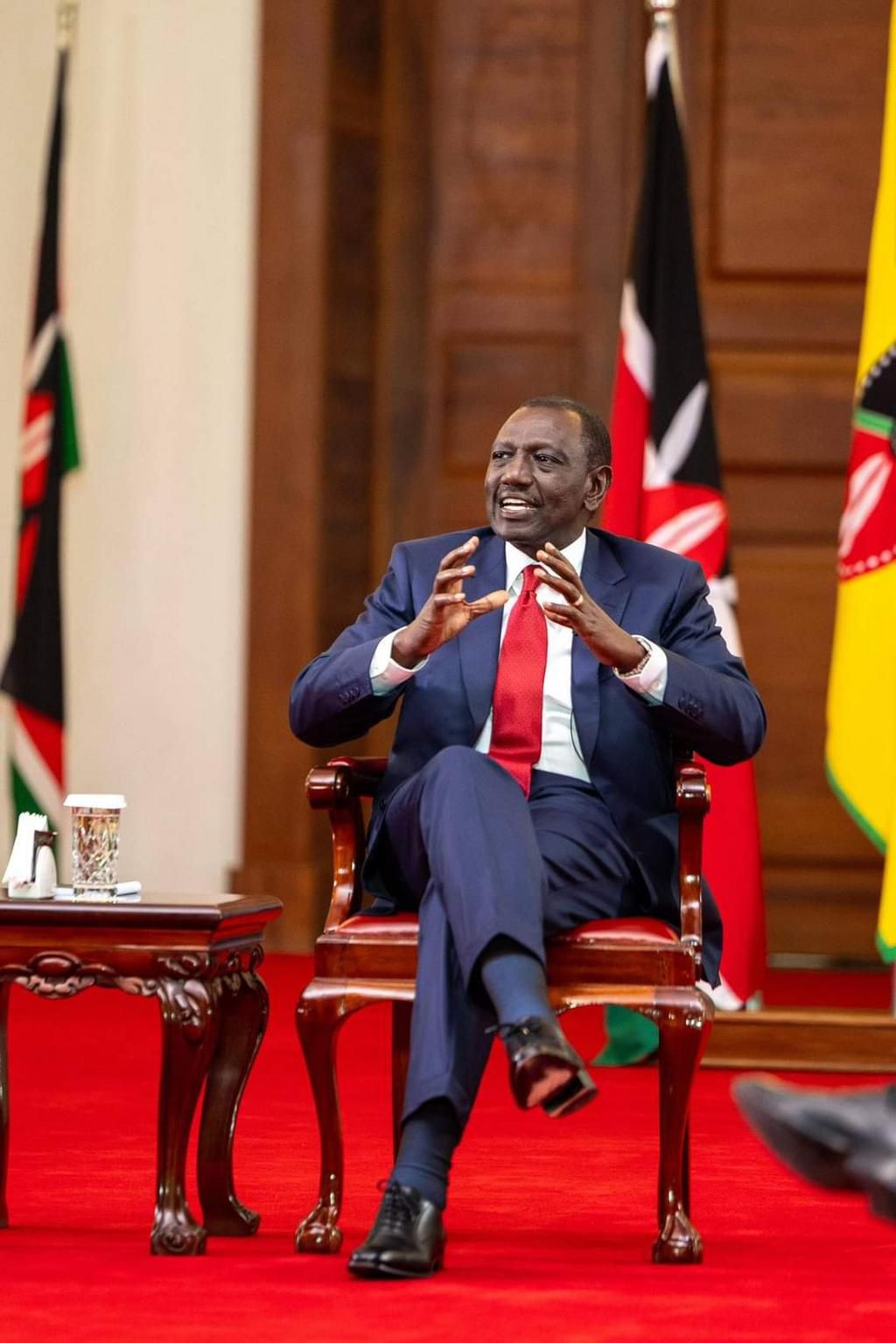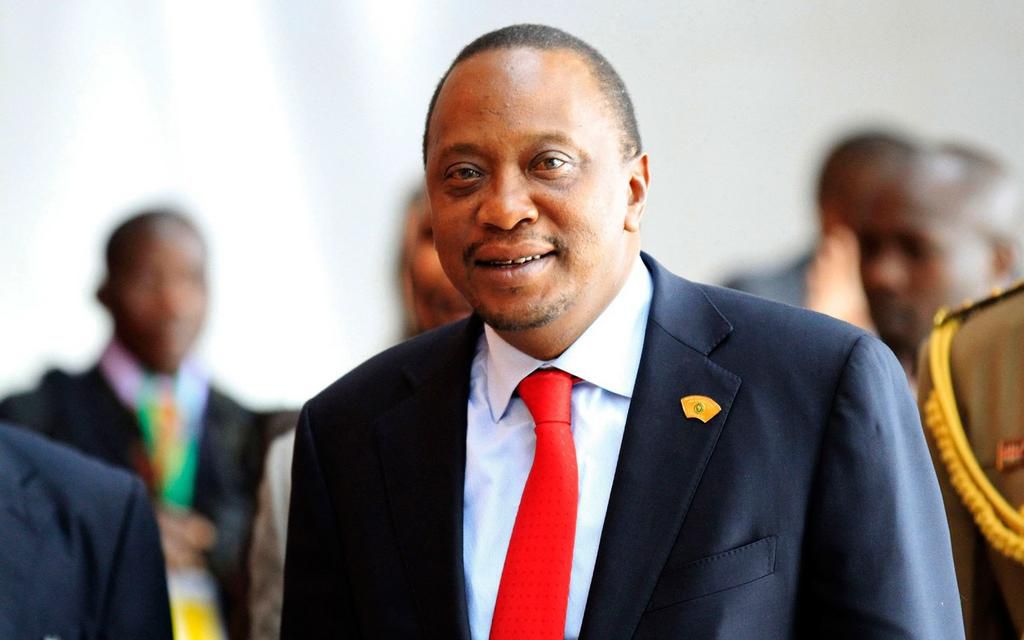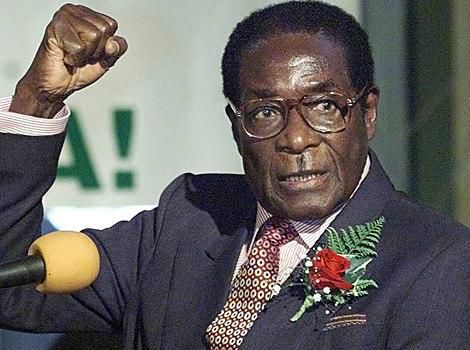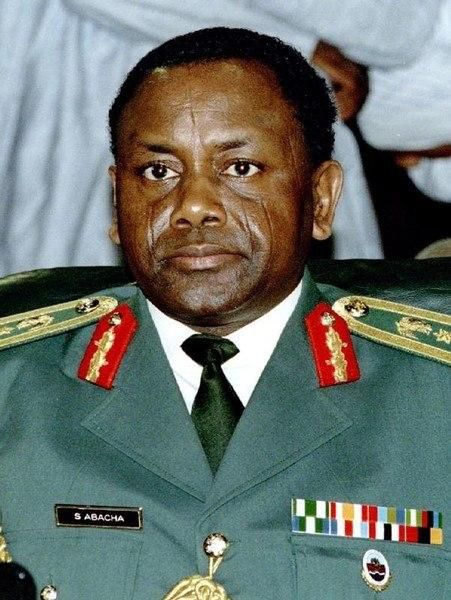Top 15 Richest African Presidents in History and Their Net Worth
)
Africa is often described as the world’s richest continent in terms of natural resources, yet one of the poorest when it comes to the living standards of its people. From sprawling oil fields and diamond mines to vast reserves of copper, cobalt, and gold, the continent is a treasure chest of wealth.
Over the years, some African leaders have been able to build extraordinary personal fortunes that in some cases rival the GDP of entire nations.
The figures are staggering. A number of presidents and military rulers became billionaires while still in office. Others transformed inherited political dynasties into powerful business empires. Some entered politics after establishing successful business careers, while others used their rise to leadership as an opportunity to expand their economic influence.
)
Take Libya’s Muammar Gaddafi, for example. At the height of his power, his reported fortune of $280 billion exceeded the annual output of most African economies at the time.
From Kenya’s political families to Nigeria’s oil-driven rulers, from Zimbabwe’s liberation leaders to Egypt’s long-serving presidents, Africa’s wealthiest leaders have left behind legacies that continue to attract fascination and debate.
The data for this list is sourced from Yahoo Finance, which compiled estimates of the personal fortunes of Africa’s wealthiest leaders across history.
So, who made the list? Here is a countdown of the 15 richest African leaders in history, from the comfortably wealthy to those whose fortunes reached truly staggering levels.
15 richest African leaders in history
15. William Ruto (Kenya) – $400 Million

Kenya’s current president, William Ruto, begins our list with a net worth of $400 million. His story is often portrayed as one of resilience: he grew up in modest conditions, famously selling chickens by the roadside, before entering politics. Ruto’s fortune comes from investments in real estate, agriculture, hospitality, and insurance.
Though his rags-to-riches narrative resonates with many Kenyans, critics question how a public servant amassed such wealth so rapidly. As president, his political opponents continue to scrutinise his financial dealings, especially in a country where income inequality remains pronounced.
14. Cyril Ramaphosa (South Africa) – $450 Million
)
South Africa’s president Cyril Ramaphosa stands out on this list because he earned much of his fortune in the private sector before returning to politics. Once a prominent trade union leader, he pivoted into business during the post-apartheid era. His investments in mining, telecoms, and banking turned him into one of South Africa’s wealthiest men.
Ramaphosa’s estimated $450 million fortune is a testament to his business acumen. Yet, since becoming president in 2018, he has faced criticism for not doing enough to tackle South Africa’s chronic unemployment, energy crisis, and corruption scandals that plagued his predecessor’s administration.
13. Paul Kagame (Rwanda) – $500 Million
)
Rwanda’s president Paul Kagame is often praised internationally for transforming his country after the 1994 genocide. Kigali has become one of Africa’s cleanest and most organised cities, and Rwanda has seen consistent economic growth.
Yet, Kagame’s personal wealth, estimated at $500 million, raises questions. His family allegedly controls significant business interests in Rwanda, including in construction, mining, and finance. Supporters argue he has delivered stability and growth, but critics contend that wealth and power in Rwanda remain concentrated in the hands of the ruling elite.
12. Uhuru Kenyatta (Kenya) – $530 Million

Uhuru Kenyatta, son of Kenya’s founding president Jomo Kenyatta, comes from one of East Africa’s wealthiest families. The Kenyatta business empire spans real estate, banking, agriculture, and media. During his presidency (2013–2022), his net worth was estimated at $530 million.
While he presided over ambitious infrastructure projects such as the Standard Gauge Railway, his administration was dogged by corruption scandals. For many Kenyans, his immense personal wealth contrasted starkly with the everyday economic struggles of ordinary citizens.
11. Teodoro Obiang Nguema Mbasogo (Equatorial Guinea) – $940 Million
)
Equatorial Guinea’s president, in power since 1979, has amassed a fortune close to $1 billion. This is extraordinary considering his nation is small and sparsely populated. Oil wealth has flowed into government coffers for decades, yet much of the population remains impoverished.
Obiang and his family have been investigated internationally for corruption, with assets seized in France and the United States. His son, Teodorin Obiang, is notorious for his lavish spending, from private jets to luxury cars, symbolising the gulf between the ruling family and the people they govern.
10. Ali Bongo Ondimba (Gabon) – $1 Billion
Ali Bongo, who ruled Gabon until a 2023 coup, inherited both power and wealth from his father Omar Bongo. The Bongo dynasty controlled Gabon for over five decades, profiting heavily from the country’s oil reserves.
Ali Bongo’s estimated $1 billion fortune includes luxury real estate in France and offshore assets. His downfall came after growing discontent over economic inequality and allegations of electoral fraud. For many Gabonese, his wealth epitomised the excesses of hereditary politics.
9. Robert Mugabe (Zimbabwe) – $3.2 Billion

Once celebrated as a liberation hero, Robert Mugabe ruled Zimbabwe for nearly four decades. His wealth, estimated at $3.2 billion, starkly contrasted with the economic collapse and hyperinflation his policies triggered.
Mugabe’s regime was marked by land seizures, international isolation, and authoritarianism. While his government claimed to empower ordinary citizens, reports suggest his family enjoyed vast overseas assets, luxury cars, and real estate. His story illustrates how revolutionary ideals can be overshadowed by personal enrichment.
8. Daniel Arap Moi (Kenya) – $3.6 Billion
Daniel Arap Moi ruled Kenya from 1978 to 2002, a 24-year tenure that saw him accumulate an estimated $3.6 billion. His rule was synonymous with the “Nyayo” philosophy of following in the footsteps of his predecessor, Jomo Kenyatta, but it also became associated with corruption and political repression.
Despite Kenya’s economic potential, his era left behind deep-rooted corruption networks and a legacy of wealth concentrated among political elites. Moi’s personal fortune remains a subject of debate, but his family continues to be influential in Kenya’s business and political scene.
ALSO READ: The 10 most dangerous jobs in the world
7. Sani Abacha (Nigeria) – $7.8 Billion

Few names in African corruption history resonate as strongly as Sani Abacha. Nigeria’s military dictator (1993–1998) looted an estimated $7.8 billion in just five years. His regime was notorious for human rights abuses, press censorship, and massive state plundering.
Decades after his death, international efforts continue to repatriate stolen funds. Abacha’s name has become shorthand for kleptocracy, symbolising how quickly national wealth can be siphoned away under unaccountable rule.
ALSO READ: Meet Strive Masiyiwa: Zimbabwe's richest man defying limits with Africa’s first AI factory
6. Zine El Abidine Ben Ali (Tunisia) – $14 Billion
Ben Ali ruled Tunisia from 1987 until the Arab Spring in 2011, when he was ousted by mass protests. His estimated $14 billion fortune stemmed from extensive family businesses, monopolies, and corruption.
His downfall was fuelled by growing public anger at his family’s control over the economy. The Tunisian revolution that removed him sparked uprisings across North Africa and the Middle East, showing how concentrated wealth and corruption can destabilise entire regions.
ALSO READ: Top 10 weakest African currencies in 2025
5. Mobutu Sese Seko (Democratic Republic of Congo) – $15.2 Billion
Mobutu Sese Seko’s 32-year rule of Zaire (now the Democratic Republic of Congo) left a lasting imprint on African politics. He amassed $15.2 billion while ruling a nation rich in minerals but mired in poverty.
Mobutu’s extravagance was legendary. He owned palaces, private jets, and luxury properties worldwide. Meanwhile, Zaire’s infrastructure crumbled. His regime coined the term “kleptocracy” for its brazen theft of state resources. Even after his death in 1997, Mobutu remains one of the most infamous African dictators.
4. José Eduardo dos Santos (Angola) – $25.8 Billion
Dos Santos ruled Angola for nearly four decades, overseeing its transformation into one of Africa’s top oil producers. His estimated $25.8 billion fortune largely came from oil revenues.
While the country’s elite grew wealthy, millions of Angolans continued to live in poverty. His daughter, Isabel dos Santos, became Africa’s richest woman before facing corruption charges. The Dos Santos dynasty epitomised how natural resource wealth can enrich ruling families while bypassing ordinary citizens.
3. Ibrahim Babangida (Nigeria) – $27.9 Billion
Known as “IBB,” Ibrahim Babangida ruled Nigeria from 1985 to 1993. His estimated wealth of $27.9 billion makes him one of the richest military rulers in global history.
Babangida’s regime was marked by corruption, failed attempts at democratic transition, and allegations of vast sums disappearing from Nigeria’s treasury. Despite his wealth, his legacy remains controversial, with many Nigerians associating his rule with missed opportunities and systemic corruption.
2. Hosni Mubarak (Egypt) – $98.2 Billion
Hosni Mubarak ruled Egypt for 30 years until his overthrow in 2011 during the Arab Spring. His estimated $98.2 billion fortune was built on alleged corruption, state contracts, and control of key industries.
Mubarak and his family faced numerous corruption trials after his resignation, though some charges were later dropped. For many Egyptians, his wealth symbolised a political order that prioritised elite enrichment over economic justice.
1. Muammar Gaddafi (Libya) – $280 Billion
)
Libya’s eccentric strongman Muammar Gaddafi tops the list with an estimated $280 billion fortune. During his 42-year rule, he controlled Libya’s vast oil wealth with near-total authority.
Gaddafi’s assets included gold reserves, foreign investments, and real estate across Europe and Africa. While he promoted himself as a champion of Pan-Africanism, his personal wealth far exceeded the development gains of his people. His death in 2011 marked the end of one of the most controversial and wealthiest regimes in modern history.
The Bigger Picture
This list is more than a spectacle of wealth; it highlights systemic issues of governance, accountability, and inequality across Africa. While some leaders built fortunes from legitimate businesses, many others enriched themselves through corruption and state capture.
For Africa’s next generation of leaders, the challenge is to rewrite this story. True leadership lies not in amassing billions, but in building nations where prosperity is shared, institutions are strong, and wealth is used to improve the lives of citizens rather than line the pockets of the powerful.
)
,fit(112:112))
,fit(112:112))
)
,fit(112:112))
,fit(112:112))